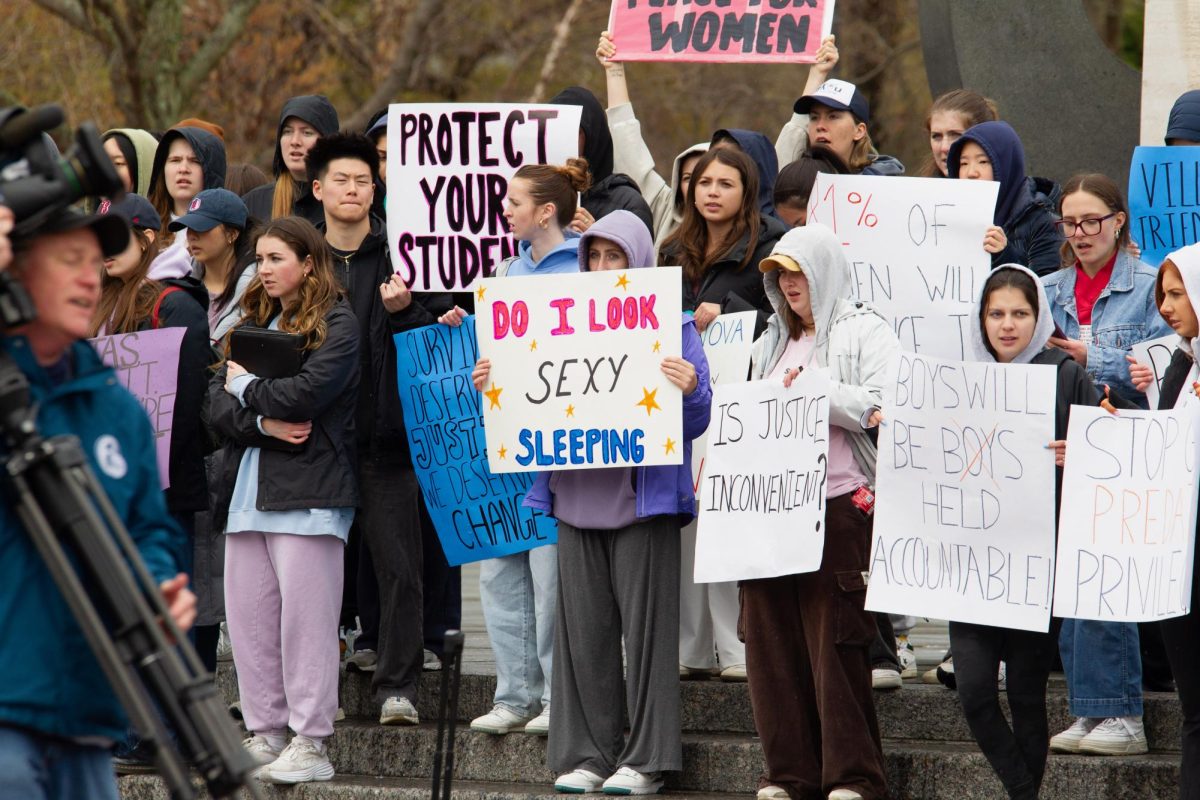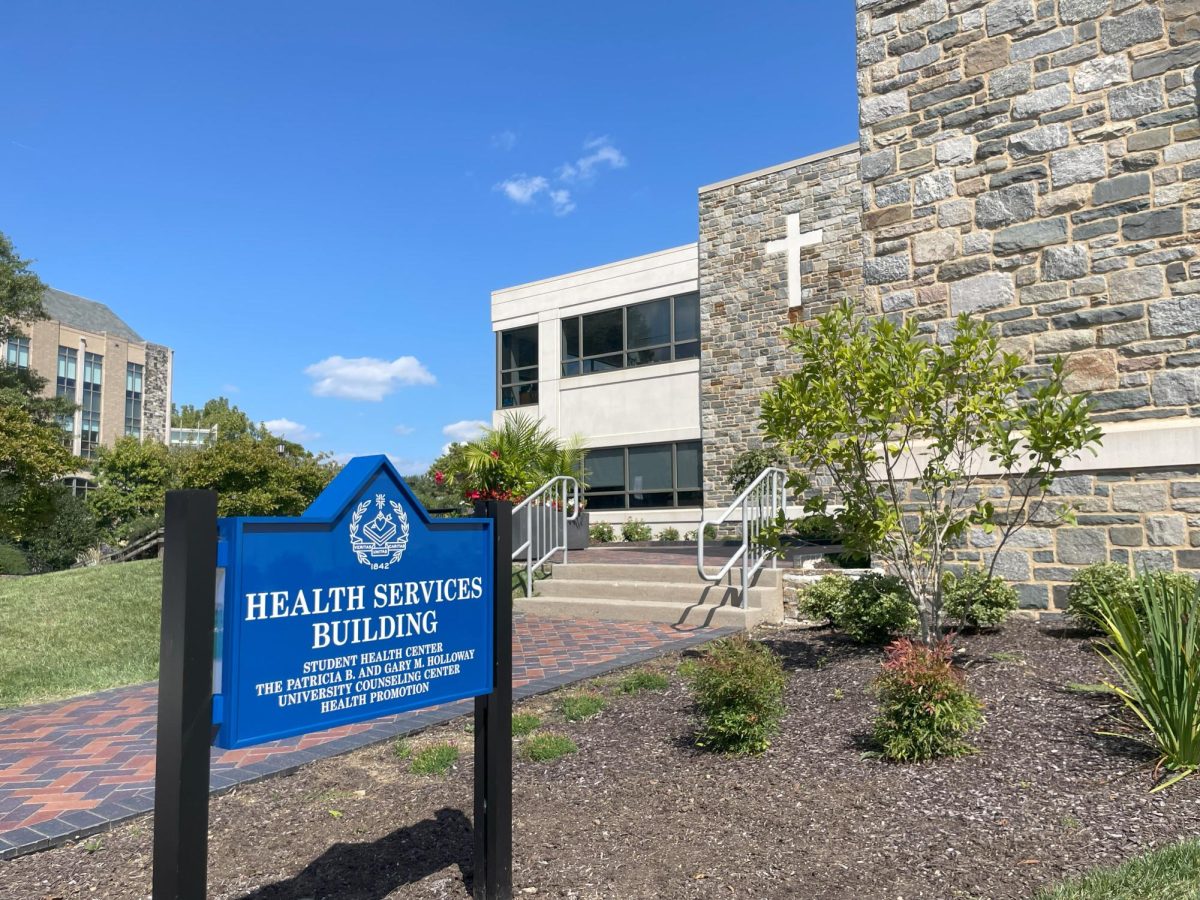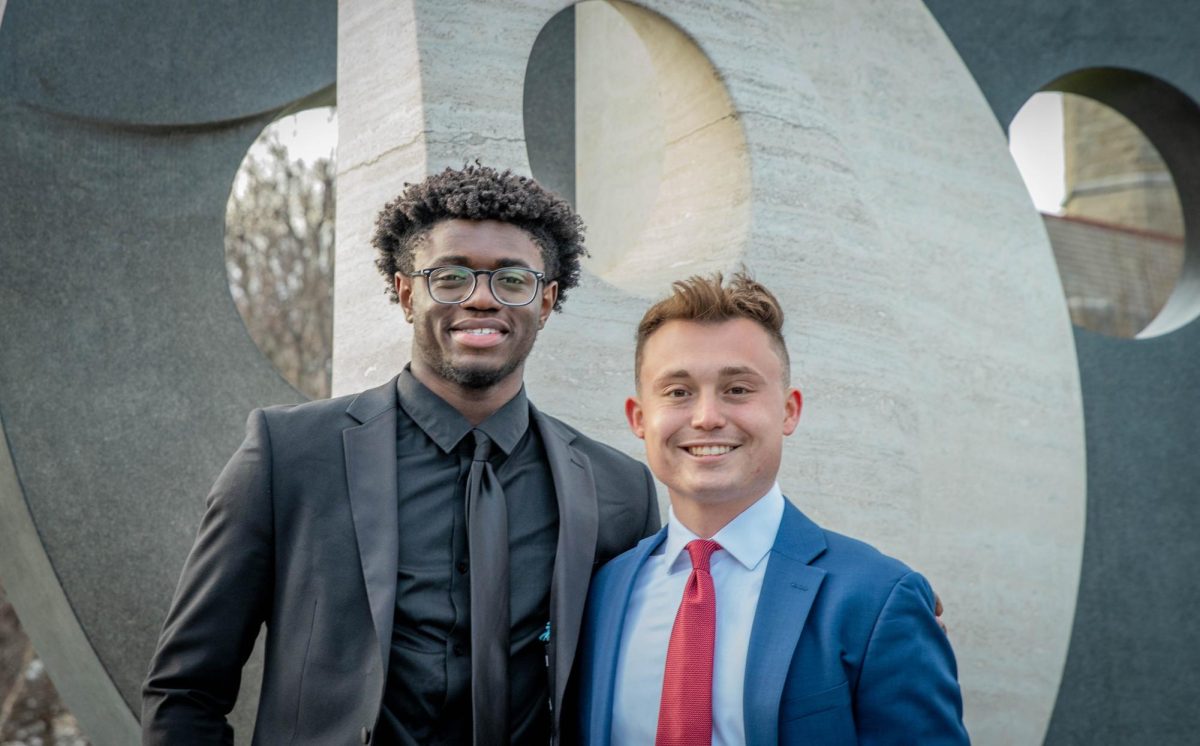On Thursday, Sept. 19, Villanova welcomed mental health advocate and author of You Are Not Alone, Zach Westerbeck, to campus. Dozens of students from nearly every chapter of Greek life on campus filed in to learn about and discuss the societal barriers surrounding mental health and how to most effectively and sincerely talk about it.
“The keynote will focus on the barriers college students face, vulnerability, creating networks of care and support and smashing the culture stigma associated with mental health,” the Office of Fraternity and Sorority Life said in a statement.
Westerbeck is a Purdue alumnus and was a member of the Sigma Chi fraternity. Following his graduation and entry into the workforce, Westerbeck recognized a significant shift in his mental health. Always anxious and with a loss of appetite, he believed he had to make an immediate change.
Westerbeck attempted to rid himself of anxiety through routinely going to the gym and hitting the sauna, performing what he described as a “reset” from college life. Rather than stop his anxiety, this reset actually exacerbated it. Though immensely difficult, Westerbeck alerted his parents about his recent suicidal thoughts and paralyzing anxiety, and they encouraged him to seek help.
From there, Westerbeck began to seek professional help, where he was ultimately diagnosed with obsessive compulsive disorder, an anxiety disorder characterized by obsessive thoughts and fears.
During the event, Westerbeck highlighted the various sayings many tend to hear when they report struggles with their mental health. “You need to get some sleep,” and “pull yourself up by your bootstraps” and others were showcased on the slide.
Westerbeck himself reminisced on his reluctance to prioritize mental health for others in his college days, sharing that he “didn’t know how to have these conversations.” When a fraternity brother came to him to discuss his recent depressive thoughts, Westerbeck claims he simply didn’t understand how he could be feeling this way while being immersed in such a vibrant party scene.
During his journey, Westerbeck realized that attitudes towards mental health have to change, sharing that struggles with mental health are not a choice and need to be discussed openly and free of judgment.
As a father, Westerbeck also shared the statistical chances of family members also having obsessive compulsive disorder, and how vital those conversations with loved ones are. He shared that his grandfather actually had undiagnosed obsessive compulsive disorder and how important knowing that would have been to his situation.
“Smashing the stigma helped me realize that mental health should be normalized,” sophomore student Meagan Clancy said. “Mental health is a journey.”
This process of “being well,” “becoming unwell” and “recovering” was spotlighted by Westerbeck, who echoed the sentiment that healing is not linear
The societal stigma to “get over mental health” is one Westerbeck firmly argues is incredibly detrimental to college students. Due to academic and social pressures, students tend to shove their struggles away to make time for their personal lives, ultimately exacerbating the problem rather than seeking help for it.
In social circles such as Greek life, it is crucial that members and friends understand how to best have conversations regarding mental health in order to aid and understand their peers.







